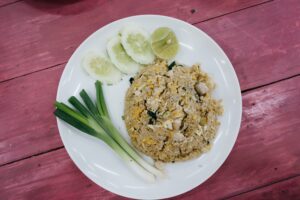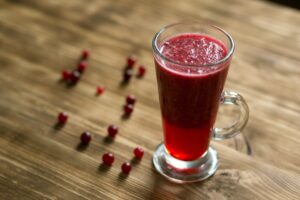A common issue impacting 10% of the global population is kidney illness. The kidneys are tiny but potent bean-shaped organs that carry out a variety of crucial tasks. This is due to your kidneys’ inability to adequately eliminate fluid and waste from your body. A diet that is good for your kidneys can keep you for longer.
So let’s discuss the ideal diet for people with kidney illness.
Diet Plan for Kidney Disease Patients
A kidney-friendly diet is a method of eating that help in preventing future harm to your kidneys. You’ll need to limit certain foods and liquids to prevent an accumulation of fluids, minerals, and electrolytes in your body. Additionally, you must ensure that your diet contains the proper proportions of protein, calories, vitamins, and minerals.
Here are some dietary changes you may make to keep your kidneys healthy.
- Plate portion
- This is one of the major steps for anyone with kidney disease. Half of your plate should be made up of fruits and vegetables, followed by one-fourth lean protein and one-fourth of whole grains.
- Reduce your sodium consumption
- Numerous foods contain sodium naturally as the most typical source is table salt. Your blood pressure is impacted by sodium. Additionally, it aids in preserving your body’s water equilibrium. Sodium levels are controlled by healthy kidneys. However, if you have kidney illness, your body accumulates extra sodium and water. Numerous issues may result from this, including high blood pressure, breathing difficulties, and fluid accumulation around the heart and lungs. Your daily salt intake should be limited to fewer than 2 grams.
Follow these easy measures to reduce the amount of salt in your diet:
- Limit your restaurant and takeaway orders
- .Avoid using table salt and condiments high in sodium, such as soy sauce, garlic salt, and sea salt.
- If you can, avoid eating processed foods. They frequently contain a lot of sodium, so if you plan to eat them, just rinse them beforehand.
- When shopping, read the labels and select low-sodium goods
- Pay attention to your protein intake
- When you consume protein, your body creates waste that your kidneys filter. Although a balanced diet should contain enough amounts of protein, eating too much protein might strain your kidneys. Although more research is required to determine the impact of a high-protein diet on general kidney health, if you already have kidney disease, your doctor is likely to advise a lower-protein diet.
- To slow the course of renal disease, non-dialysis patients with any stage of CKD should keep their protein consumption between 0.6 and 0.8 grams per kilogram of body weight. For instance, a person weighing 150 lbs. (68 kg) would require 40 to 54 grams of protein daily or 4 to 6 ounces of protein from either animal or plant sources.
- Reduce the amount of calcium and phosphorus
- These minerals are essential for strong, healthy bones. Your kidneys eliminate the phosphorus you don’t need when they are functioning properly. However, phosphorus levels can rise too high if you have kidney disease. You are now at risk for developing heart disease. Additionally, your calcium levels start to decline. Your body extracts it from your bones to make up for it.
- Foods with high calcium content also frequently have a high phosphorus content. Your physician could advise you to consume fewer calcium-rich foods. Lower phosphorus dairy products include:
- Sour cream, cream cheese, or both, regular or low-fat
- Swiss cheese
- Limiting Potassium intake
- Your muscles and nerves will function properly thanks to this mineral. However, kidney disease impairs your body’s ability to filter excess potassium. It can cause major heart problems if there is too much of it in your blood.
- Many fruits and vegetables are high in potassium. Your blood potassium levels may be impacted by certain foods. If you need to limit this mineral in your diet, your doctor will let you know.
If so, they might advise you to try low-potassium foods such as:
- Cranberry or cranberry juice
- Apple or apple juice
- Blueberries, raspberries, and strawberries
- Plum
- Peaches
- Pineapples
- Beans
- Cucumber
- Celery
- Asparagus
You might need to alter your diet further as your kidney condition worsens.
Conclusion
If you have kidney disease, the above mention steps are a way to manage your condition. Depending on the extent of your kidney injury, different dietary limitations and nutrient consumption guidelines will be given.

